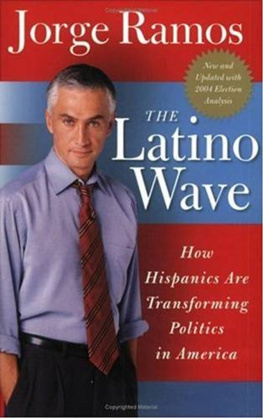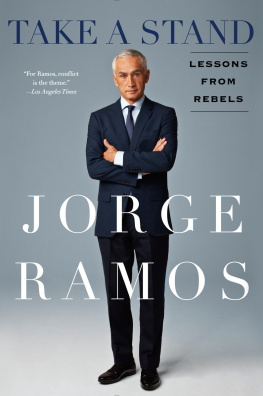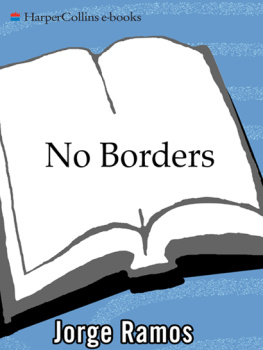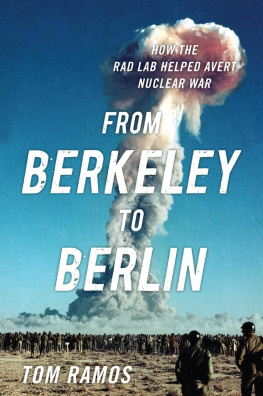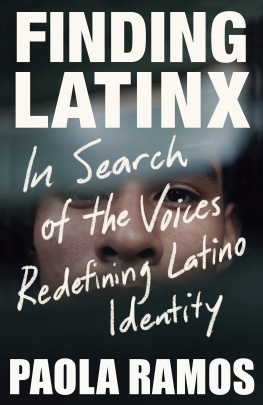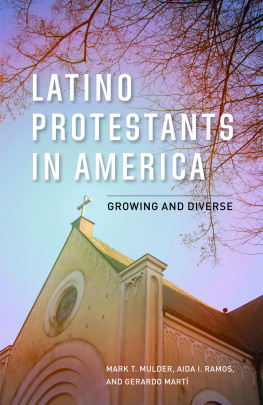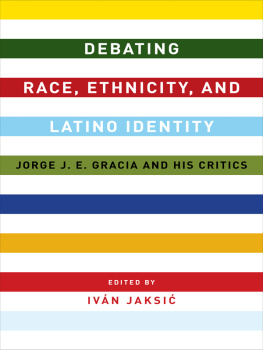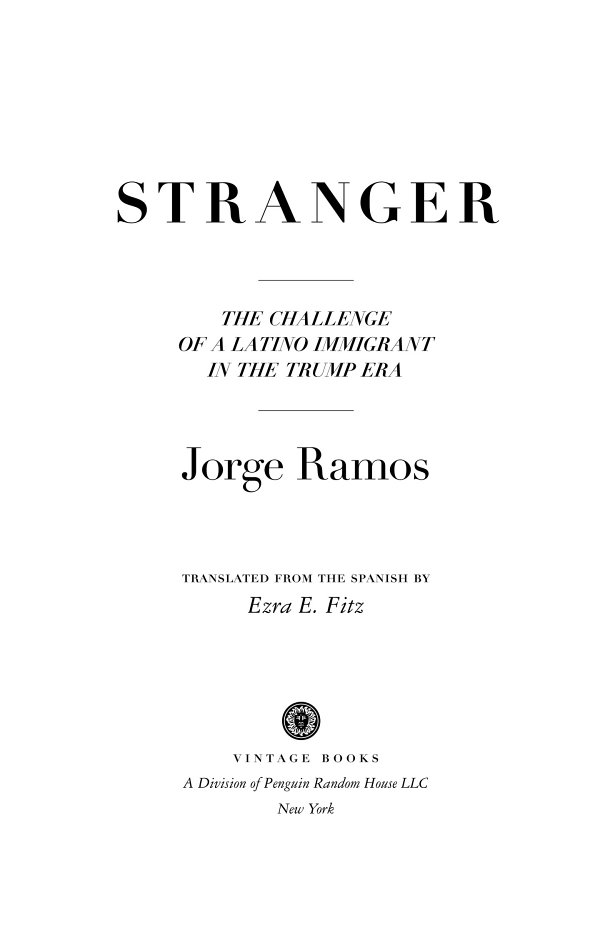All rights reserved. Published in the United States by Vintage Books, a division of Penguin Random House LLC, New York, and distributed in Canada by Random House of Canada, a division of Penguin Random House Canada Limited, Toronto. Simultaneously published in Spanish by Vintage Espaol, a division of Penguin Random House LLC, New York. Copyright 2018 by Jorge Ramos.
Vintage and colophon are registered trademarks of Penguin Random House LLC.
The Cataloging-in-Publication Data is on file at the Library of Congress.
I have been a stranger here in my own land.
Wherever you have friends, that is your country, and wherever you receive love, that is your home.
To get back homeward.
Prologue
There are times when I feel like a stranger in this country where Ive spent more than half my life. Im not complaining, and its not for lack of opportunity. But it is something of a disappointment. I never would have imagined that after having spent thirty-five years in the United States, I would still be a stranger to so many. But thats how it is.
Despite this feeling, I want to begin with gratitude. The United States is the birthplace of my children, whom I love more than anything in this world. It is here that I was able to pursue my passion and my professionjournalismwith absolute freedom. Here we can feel the energy of change: a desire for openings and innovations that can be hard to find in other parts of the world. Almost all of us here are either immigrants or the descendants of foreigners, and that has always helped us to cross borders and exceed the limits of what we thought was possible. Democracy is still the accepted political system here, and the notion of equality was established from the very moment this nation declared its independence. Here, people can live well and enjoy justice, which, in its original sense, means giving everyone his or her due.
Thats why I live here. I have the wonderful circumstance and privilegeone shared by millions of peopleof living in a country that accepts you with open arms. I became an American of my own free will, and the United States willingly accepted me.
Of course, none of this erases where I came from. I was born and raised in Mexico, and I will never cease to be Mexican. I love the solidarity of the Mexican people; it is a wonderful nation, one in which you will never feel alone, with a magical and incomparable history. It is an extraordinary country bursting with hopes and desires and extending its culture across the globe: a very different place from the one we see in the news, portrayed through images of violence and corrupt politicians. Most of my family still lives in Mexico. I visit them several times a year, and I am always concerned about what is happening on both sides of the border.
Both my private and public lives are binational and transnational. I am at once Mexican, American, Latino, foreigner, immigrant, emigrant, and chilango, among many other things. In other words, to many people, I represent the Other.
But the United States as a country has historically been accustomed to othersnewcomers, those born elsewhere, those who see and speak differentlyand therefore has developed a healthy tolerance for those who appear different.
But not everywhere. And not all the time.
The history of this nation registers cycles of acceptance when it comes to foreigners, followed by cycles of tremendous rejection and discrimination. This latter cycle is the one in which we are living now.
There are parts of the country that are more resistant to immigrants, blaming them unfairly for the primary problems we face, from a lack of well-paying jobs to crime. And there are politicians who take advantage of this fact in order to divide the nation and win votes. Politicians such as Donald Trump.
But let me clarify something.
This is not a book about Donald Trump. But his entry into politics and his rise to power are directly related to the growing anti-immigrant sentiment thriving across the United States. Its as bad as Ive ever seen it since I first arrived here in 1983. Its as if Trump has given people permission to attack immigrants and make racist remarks, just as he has done.
Words matter. And the problem isnt limited to Trump: there are the sixty-three million Americans who voted for him and who, in many ways, think as he does. Yes, hatred has been brewing since Donald Trump stepped into the world of politics, but we cannot accept or normalize it.
Trumps attacks on immigrants and his apparent attempt to halt the demographic change that the United States is experiencing are going to fail. He is swimming against the current. He announced his campaign on June 16, 2015, but the U.S. Census Bureau subsequently published a population report estimating that as of July 1, 2015just fifteen days latermore than half (50.2 percent) of all infants under the age of one had been born to minority parents.
The United States has never been a pure country. Conquistadores such as Juan Ponce de Len and Hernando de Soto spoke Spanish in what is now the Southeast some two centuries before the first Pilgrims arrived in New England. There is evidence of the presence of Africans in our lands since the early seventeenth century. And the Native Americans preceded them all.
The very essence of the United States is to be a multiethnic, multiracial, multicultural nation, a diverse and tolerant one created by immigrants under the guiding principles of freedom, equality, and democracy.
Trump does not seem to understand this nations history. Ultimately, we will look back on his presidency as one of the saddest moments in an already long list of racial and ethnic strife. Its as if we havent learned anything from our past. For now, though, we will have to endure and resist it.
Sometimes, I think Ive been preparing myself for this moment all my life. This is a book about what it means to be a Latino immigrant in the time of Trump. But it begins at the precise moment when one of his bodyguards threw me out of a press conference. That changed so many things for me. So this is a book about what it means to be a stranger in the United States during the first half of the twenty-first century.
Stranger is a word that simultaneously denotes both the foreign, extrao, and the foreigner, extranjero. Thats why we decided to use it as the title for both the English and the Spanish versions of this book. It is a more complete and more inclusive title, but also a more contradictory one. How can someone who has spent more than half his life in a certain country be a stranger?
Originally, this book was going to be titled Far from Home. I have moved dozens of times here in the United States, and I always feel as if Im looking for that same sense of happiness, security, and tranquility that I felt in the house where I lived for almost two decades in Mexico City.
It is, I know, an impossible search. Memories are tied not only to physical places but also to specific moments. That is why we cant return home, at least not to the house that all immigrants have left behind and that now exists only in our minds and in our memories.


